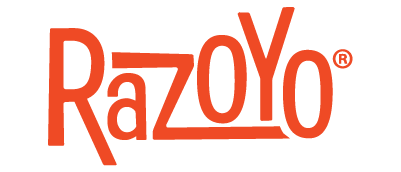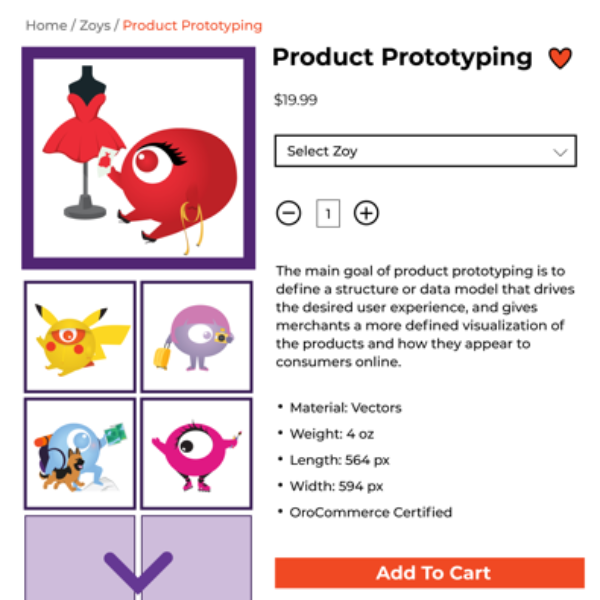
What is a partner?
May 14, 2021 by Paul Byrne
Choosing A Developer | Partnerships
This morning, two companies reached out to me about their partnership programs. One was hoping to sign me up for their new partner program, and the other was a friendly reminder to pay my annual partnership fees.
Development agencies like ours get solicitations like these all of the time. You may know that Razoyo is a ‘partner’ with Magento, BigCommerce, OroCommerce, and SAP to name a few. But, what exactly is a partner? Is it better to work with a partner? What are partnership programs like for Agencies? Should you be looking for a company that is a listed partner? Well, let’s talk about it.
Non-Disclosure Agreements and Fees
The first rule of signing up to be a partner? Don’t talk (bad) about the partnering company. For that reason, I’m going to change names to protect the guilty and talk about partnership programs using colors rather than company names. Let’s call these partners we work with Red, Blue, Yellow and Green.
Some partners require you to pay an annual fee (along with those friendly email reminders!). Fees usually depend on the level of partnership and can range from $2,500 to $50,000. As you may have already guessed, fees are a bad idea - especially in large companies because they set up a perverse incentive.

When the partnership program becomes a revenue-generating business unit, eventually the executives will want it to contribute to the bottom line. When that happens, the most important attribute of an agency partner is how many fees they pay. Whether or not they can deliver a build or have efficient code or treat your customers (their clients) well becomes a secondary consideration.
In addition, when you charge fees for the partnership program, you want to keep costs down. Working with agency partners takes effort because, believe it or not, the software is not perfect, might be difficult to work with, and is never fully documented. So, as you can imagine, when times are tough, those resources (which are often a key value to partners) get squeezed.
Why do agencies pay the fees?
There is only one good answer to that: Sales leads. Businesses looking to build a website (ecommerce or not) most frequently contact the platform provider before looking for an agency. We’ll do another blog post on why this approach is backwards in the near future.

Our Experience with Partnership Programs
Partner programs vary immensely in the amount of attention the provider pays to the program and the advantages offered. Some partnership programs are nothing more than posting each other’s logos on their sites. Some partnership programs create a tight working relationship between the platform provider and the partners.
Red Company
To be quite frank: Red Company’s partner program and community is one of the strangest environments I’ve encountered. In addition to paying an annual fee, this partner program agreement requires you to sign up a minimum number of new clients on the paid version of their software and keep a couple of certified developers on staff.
In return, you receive the right to claim you are a partner and put their logo on your website, a listing in their partner directory, more direct access to support, access to the paid version of the software for development purposes and the ability to work with a salesperson who may or may not give you some leads.
In reality, Red Company is famous for pitting partners against each other to clamor for leads and giving all of the high-value leads to a few very large consulting companies. If the salesperson likes you and the political winds are blowing in your favor, they may introduce you to some prospective clients (if they think you can help them close a sale).
RedCo also may or may not assign you a partner manager. When we had one, we weren’t exactly sure what his role was… He seemed a bit confused, too.

The “enhanced” support was also lacking. Responses are anything but timely and they certainly reserve their best people for only the highest-tier accounts. Agencies who specialize in mid-tier clients may feel left on their own.
Red Company actually took a lead we gave them and referred them to a competitor of ours. The competitor promised them the moon, but failed to deliver and actually damaged their business with a buggy implementation. In less than one year, that client returned to Razoyo to get back on the right track.
Did I mention they also charge pretty hefty fees to certify developers? Yeah, seems like something isn’t quite right here.
Blue Company
Thankfully, this company does not charge partners to participate in their program. Their partner managers are very engaged and work hard to understand what opportunities it will make sense to work on together.
Before the pandemic, we had a pretty steady flow of leads. Understandably, things got choppy for about a year, but it looks like we’re starting to get leads again. They do require agencies to have developers and business people who are certified, but they help by providing a highly-developed training program to partners for free.

Blue Company seems to have two key objectives of their partnership program that I find appealing:
- Because they are focused on the long-term relationship with their customer they strive to find the developer with the best chance of success in the client relationship
- They want agencies to be well-integrated with their technical staff in order to solve any technical issues with clients quickly and effectively
When we work with BlueCo we feel like we are working together (as a partnership should). For example, during the sales process we communicate to assess client needs early. We collaborate to determine the level of effort and a realistic budget for the client based on our collective experience.
In some cases, this has resulted in us recommending a different platform or development agency. By identifying that early on, nobody feels too vested in the process to walk away.
Yellow Company
YellowCo does charge for their partnership program and charges the highest fees. However, they are also the most prolific at bringing us leads that match our agency strengths. We work together early on in the sales process which almost ensures our eventual selection as the agency for the project.
While this company has less prolific documentation and training resources, they are the absolute best at answering technical questions. They even anticipate issues that may arise. Even though their formal training program may be a little weaker, I feel we learn the most as an agency from YellowCo.
Working with YellowCo is usually a true collaboration; sharing ideas and developing proposals together. We look over each other’s plans and trade a healthy amount of constructive criticism with the aim of providing the best outcome for our mutual client.

Green Company
This company made us jump through a lot of administrative hoops to sign up as a partner. However, once we were in, we were in. We only joined Green Company’s partnership in order to bid for a project for a past client. We since lost the project and have left the partnership to languish.
That being said, we’ve never actually spoken to a person at GreenCo. Everything has been done online through automated processes. My guess is that no actual person there even knows who we are. Nonetheless, we have the right to put their logo on our website and claim partnership!

TLDR; Should I prefer to work with a partner agency?
My basic answer to this is a qualified no. For years, Razoyo worked primarily on Magento without being a partner (we are now). However, during those years we rescued multiple implementations from developers who displayed the partner badge on their site.
What does the partner badge tell you? If you don’t know much about the partnership program, it only tells you that the development partner has some interest in the platform.
Here’s my advice when working with a technology platform and an agency partner (aka systems integrator, implementer):
- Learn what you can about the partnership program and how it works from external sources before the platform introduces you to an agency. Find out if partners pay for the privilege, what they get for it and how leads are distributed.
- Evaluate the agency on their own merits. Your account may have been ‘handed’ to a particular partner simply because it was their turn. Get references from the agency and, if you can, contact their clients on your own rather than having them give you a contact.
- Speak to multiple agencies and platforms during your selection process after you have made a detailed list of your own requirements. Know what your show-stoppers are and make sure the platforms and agencies do, too.
Of course, the world of agency/technology-provider/platform partnerships represents such a plurality of experiences and pros and cons there can be no definitive answer to this question.
But one thing we’ve learned to be true is: a partnership program that is poorly run will undoubtedly result in poor workmanship.





